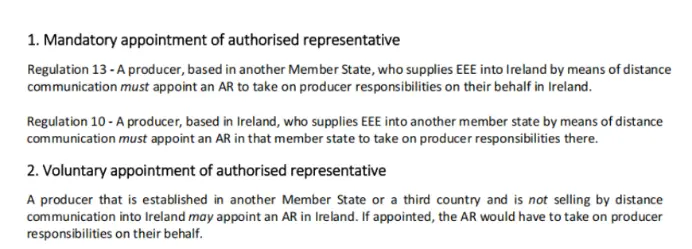
What is EN71 Testing?
To strengthen the supervision of the quality of children’s toy products and comprehensively ensure children’s personal safety while playing, countries around the world are actively promoting and continuously improving the construction of toy product safety standard systems. Currently, the toy safety standard EN71, implemented by the European Union, has attracted wide attention. This toy directive explicitly applies to any product or material designed for or intended to be used by children under 14 years of age.
So, do you know what specific test items are coveRED by EN71? JJR Testingwill provide you with a detailed explanation below.
What is the EN71 Testing Standard?
EN71is a regULatory standard for toy products in the European market. Children are a group that society cares for deeply, and the toy market — beloved by children — has been growing rapidly. However, injuries caused by poor-quality toys occur from time to time. Therefore, countries around the world are increasingly tightening requirements for toys sold in their markets.
What Does EN71 Include?
The en71 standardis a legal requirement for all toys sold within the European Union to meet the basic requirements of the Toy Safety Directive (TSD).
It consists of the following 12 parts (Note: Part 6 has been withdrawn):
EN71-1: Mechanical and physical properties
en71-2: Flammability
EN71-3: Migration of certain elements
EN71-4: Experimental sets for cheMICal and related activities
EN71-5: Chemical toys (sets) other than experimental sets
EN71-6: Graphical symbols for age warning labeling (withdrawn)
EN71-7: Finger paints
EN71-8: Swings, slides, and similar activity toys for indoor and outdoor family use
en71-9: Organic chemical compounds – requirements
EN71-10: Organic chemical compounds – sample preparation and extraction
EN71-11: Organic chemical compounds – analytical methods
EN71-12: N-nitrosamines and N-nitrosatable substances
EN71-13: Olfactory games, cosmetic kits, and gustative games
Commonly Applied EN71 Tests
There are many en71 standards, but typically, general toys, daily-use items, handicrafts, toy-like products, and baby products are tested only on three main parts before being approved for entry into the EU market:
EN71-1:Physical and mechanical properties
EN71-2:Flammability
EN71-3:Migration of toxic metals
EN71-1: Mechanical and Physical Properties
(1) Overview:
EN71-1 mainly tests for sharp points, sharp edges, tensile strength, pressure resistance, and more.
(2) Detailed Analysis:
This section specifies the safety technical requirements for the mechanical and physical properties of toys intended for children of various age groups, from newborns to 14 years old. It also defines requirements for packaging, labeling, and instructions for use.
Toys must not collaPSE, be swallowed, have sharp edges or points, produce harmful noise, or pose any other hazards that could endanger children’s safety and health.
(3) Specific Test Items Include:
Sharp point test, sharp edge test, small parts test, pressure test, bending test, impact test, seam strength test, tensile test, torque test, noise level test, strength of moving parts, packaging film thickness test, projectile toy test, hair attachment test, etc.
EN71-2: Flammability
(1) Overview:
EN71-2 tests toy flammability, mainly evaluating the burning rate of materials such as plush toys, textile toys, and headgear-type toys.
(2) Detailed Analysis:
EN71-2 specifies the types of highly flammable materials prohibited in all toys. It requires that the burning time (seconds) or burning rate (mm/s) of certain materials must not exceed the limits defined by the standard, with different requirements for different materials.
(3) Mainly Involved Products:
① Headgear-type toys:Including beards, moustaches, wigs, and similar materials made from hair, plush, or other fibers, as well as molded or fabric masks and flowing materials attached to hats or masks.
② Toy costumes and dress-up clothing:Such as cowboy suits, nurse uniforms, and other role-play outfits.
③ Toys for children to enter:Including toy tents, puppet theaters, playhouses, and toy tunnels.
④ Soft-filled toys with plush or textile coverings:Including stuffed animals and dolls.
EN71-3: Migration of Certain Elements
(1) Overview:
EN71-3 specifies the limits of migratable elements (antimony, arsenic, barium, cadmium, chromium, lead, mercury, and tin) in accessible parts or materials of toys — commonly known as the “eight heavy metal migration test.”
(2) Detailed Analysis:
① Accessibility Determination:Using a jointed probe (simulated finger) to test whether parts of the toy can be REACHed. If the probe can touch a part, it is considered accessible.
② Principle of Element Migration Test:Simulates the condition in which toy materials come into prolonged contact with gastric acid after swallowing, measuring the amount of elements dissolved from the toy materials under such conditions.
EU Toy Safety Enforcement
The European Union has been intensifying its inspection of toy compliance. Many toys have been officially reported and ordered off the market due to failure to meet EN71-2 flammability standardsor EN71-1 small parts regulations.
Email:hello@jjrlab.com
Write your message here and send it to us
 LFGB Test Requirements for Food Contact Materials
LFGB Test Requirements for Food Contact Materials
 Irish Battery Act Requires an Authorised Represent
Irish Battery Act Requires an Authorised Represent
 Swedish Battery Act Requires an Authorised Represe
Swedish Battery Act Requires an Authorised Represe
 Amazon TIC Provider
Amazon TIC Provider
 Amazon Battery and Charger Requirements
Amazon Battery and Charger Requirements
 Amazon Japan METI A Domestic Administrator Service
Amazon Japan METI A Domestic Administrator Service
 What is "Amazon Japan PSE: A Domestic Adminis
What is "Amazon Japan PSE: A Domestic Adminis
 What Does "ASTM F963-17 Certified" Mean?
What Does "ASTM F963-17 Certified" Mean?
Leave us a message
24-hour online customer service at any time to respond, so that you worry!




